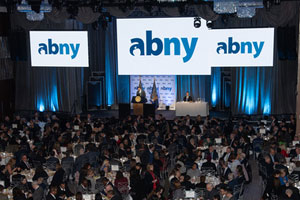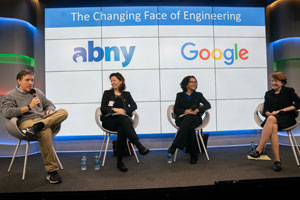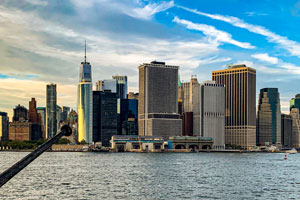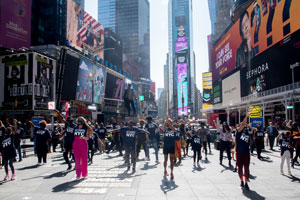October: Hispanic/Latinx Leadership
In honor of National Hispanic Heritage Month, we are highlighting Young Professionals who have championed Hispanic and Latinx American communities, culture, and history in New York City. Congratulations to our October Spotlights of the Month, GuiselaMarroquín and Brian Romero!
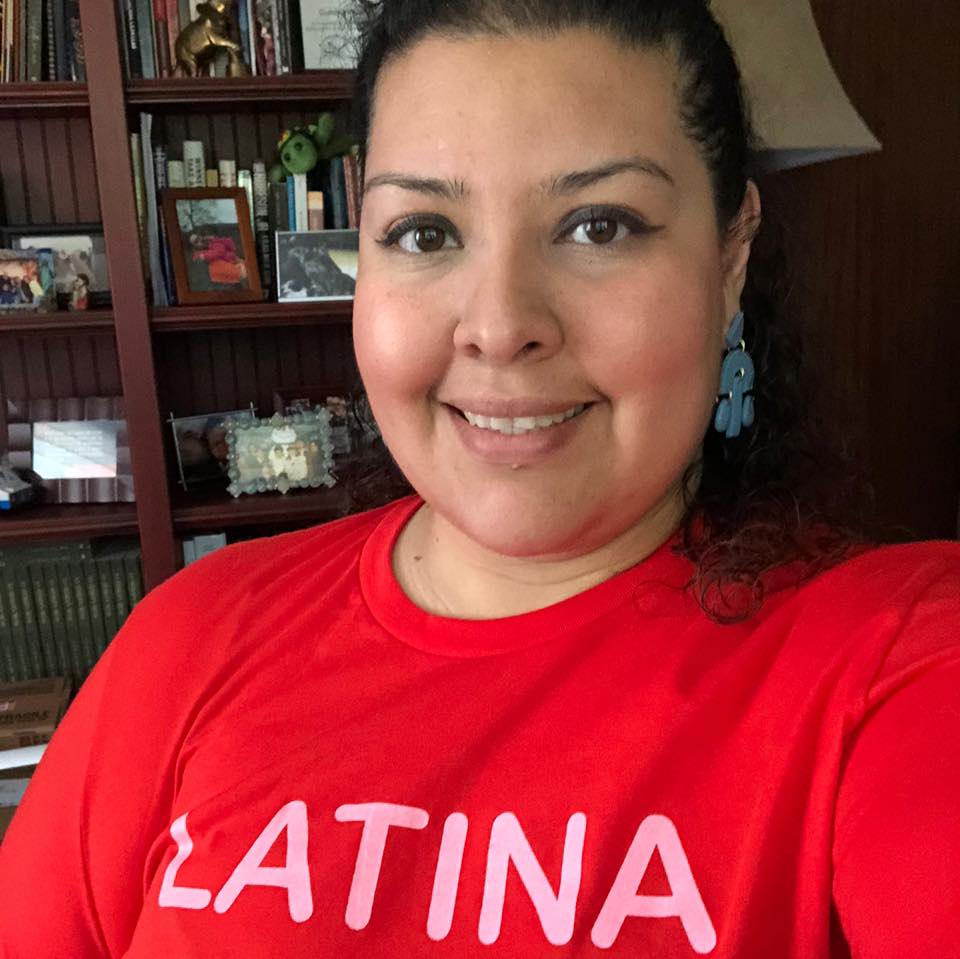
Guisela Marroquín
From an early age, my mother and grandmother modeled being resourceful and creative—both seeking knowledge and solutions as single mothers and as immigrant women. They also instilled in me a strong sense of community through how they showed up in friendships and with family. When we emigrated to the United States when I was eight-years-old, those teachings helped me navigate a completely new environment and culture, uplifting for me the importance of building relationships to have a network of support as well as a network to learn from and share with. I credit getting to where I am to those who I was able to build authentic relationships with, those who shared joy and also vulnerability: teachers, friends, neighbors, advisors, and coworkers. In those relationships I have found validation, confidence, inspiration, and parts of myself—especially a deeper connection to my culture and language, there is something transformational about speaking, writing and singing in my native Spanish language! Where I am today is therefore not defined by my profession but rather by my personal growth and journey that informs the work I pursue and the values I center in my work. Where I am today, both personally and professionally, has been built on a mosaic of experiences and narratives that I have been privy to listen to, witness, and create with others. Namely, I currently hold a role within philanthropy that supports groups through providing resources to carry out their work addressing the criminal justice system in New York City. However, I bring to this work that sense of community my mother and grandmother modeled, making my focus building a strong relationship and true partnership with the groups I engage with. Additionally, I see my role as having a storytelling and narrative strategy component, uplifting the impact and power of these groups in pushing for social justice and transformative change.
I am most proud of my development as an organizer and strategist with the mission to share what I know and have access to. I pursued a Master’s in Social Work focused on Community Organizing to have access to the language and framework that could elevate the experience and impact of the movements I was engaged with on the ground. I pursued that degree in a moment when I faced some of the greatest challenges of my life, and when organizing was also being challenged because it had proved to be such an effective tool for transformation. In that maze of systemic and oppressive social forces, I connected with individuals at actions, on the streets, and in the classroom, where we found healing through defending our collective survival. I had the opportunity to see both the worst and also the best of what I could be a part of, and so I am now able to make connections across issues and sectors and identify practices, tactics, and strategies as my artform and signature.
Find your signature and surround yourself with people who push you past your comfort zone! Another way to put it is to say that you should be grounded in a set of values that help you understand what role you want to play personally and professionally. Social work and community organizing emphasizes self-reflection—we need to know ourselves and capture the things that push us into discomfort, and then learn and grow from those reflections. All of that shapes and centers the values we embody in our personal and professional interactions. A mentor also told me: “Know your signature and then find someone to pay you for it.” So many of us pursuing higher education or a job prospect give so much power to an institution or an individual, but we lack the confidence to “market” ourselves. I took that advise to remind me that my “signature” was what others were able to tell me about myself, the importance of relationships, and those who helped get me to where I am today. When I lack that confidence, I ask the experts: my friends, my colleagues, my mentors. I also revisit letters, pictures and tap into the stories that validate the power of my community, my culture, and my roots.
On December 30, 1989, my mother, my aunt, and I arrived by plane to New York City from Guatemala. It had been a very long trip and it was nighttime. The city lights were bright, and the spirit of a vibrant community was palpable from over 20,000 feet. I didn’t know then that I would live here for so many years, and it has taken a long time to feel like I belong here. While I haven’t traveled extensively, I know I’m a New Yorker every time I see those lights and experience that vibrancy. And it is my commitment to my younger self to make sure that a new generation of New Yorkers get the best version of this special place.
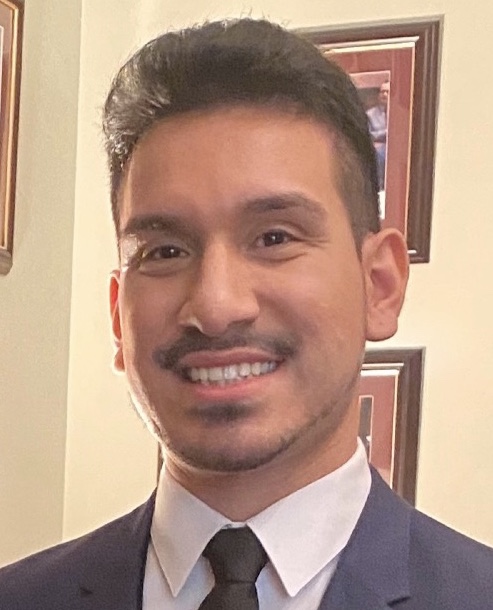
Brian Romero (he/him)
I was very privileged to have been able to access institutions of higher education and graduated with a Bachelor of Arts in Forensic Psychology from John Jay College of Criminal Justice and an MSW from Silberman School of Social Work at Hunter College. I worked in human services as a direct care worker and as a supervisor before I became a licensed social worker and psychotherapist. I worked as a psychotherapist and social worker in a community school and an outpatient clinic in Washington Heights before I took a job as a psychotherapist at GMHC. During this time, I simultaneously engaged in grassroots and political activism, which led to my transition to the policy department where I work to advance the policy and advocacy priorities of GMHC for people living with and affected by HIV/AIDS and the LGBTQ community.
I am proud and honored of the work I have done at GMHC both as a direct service provider but also as an advocate who has worked to advance systemic and legislative solutions to the many issues that impact our clients and communities today. During the time I have worked in the policy department I have felt a sense of hope as I worked in coalition with other organizations, advocates, and directly impacted community members to both name and combat systemic racism and oppression in many of our systems. I am also proud when we can connect intersecting issues in our priorities in a way that moves away from the siloing that has occurred in our communities. It is important to proclaim that #BlackLivesMatter. It is more important to embody the mission of that declaration in policy and practice.
I would recommend that young professionals invest time in community service and volunteering for causes that they care about. Those opportunities allow for many contributions to communities and to network and build relationships with like-minded people and maybe even friends. Identifying a mentor is also important. It is a relationship that is reciprocal in developing your identity as a professional and allows you to also support the work of a leader in the field you are interested in. More importantly, I recommend that young professionals do what makes them feel a sense of happiness and purpose. This helps the work to be more sustainable as we put in the many hours necessary to get the job done.
During challenging professional moments, I have drawn often on my identity as a New Yorker. This has been especially true when I have found myself outside of New York and when I have worked with colleagues from other states. It is those moments when I proudly claim my identity as a born and raised, tough New Yorker.

